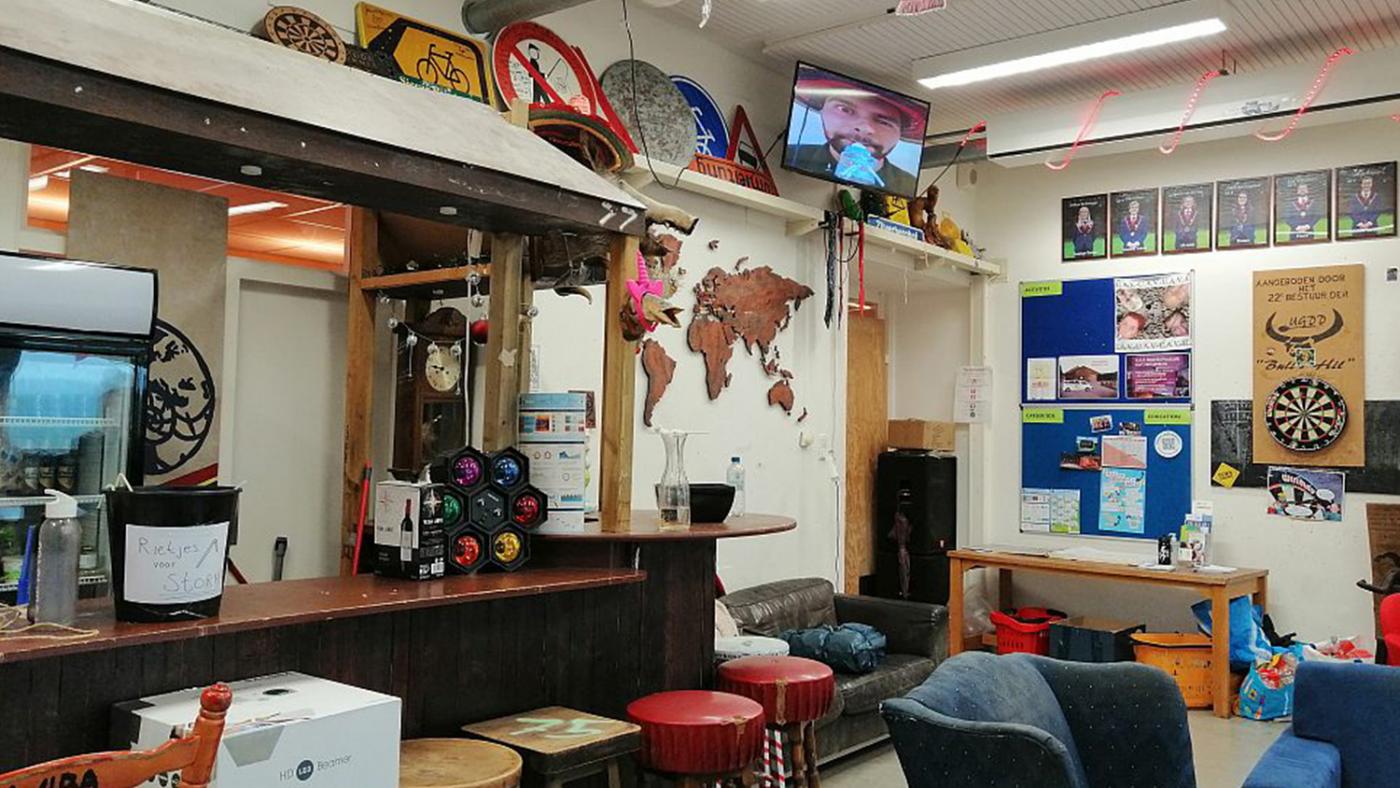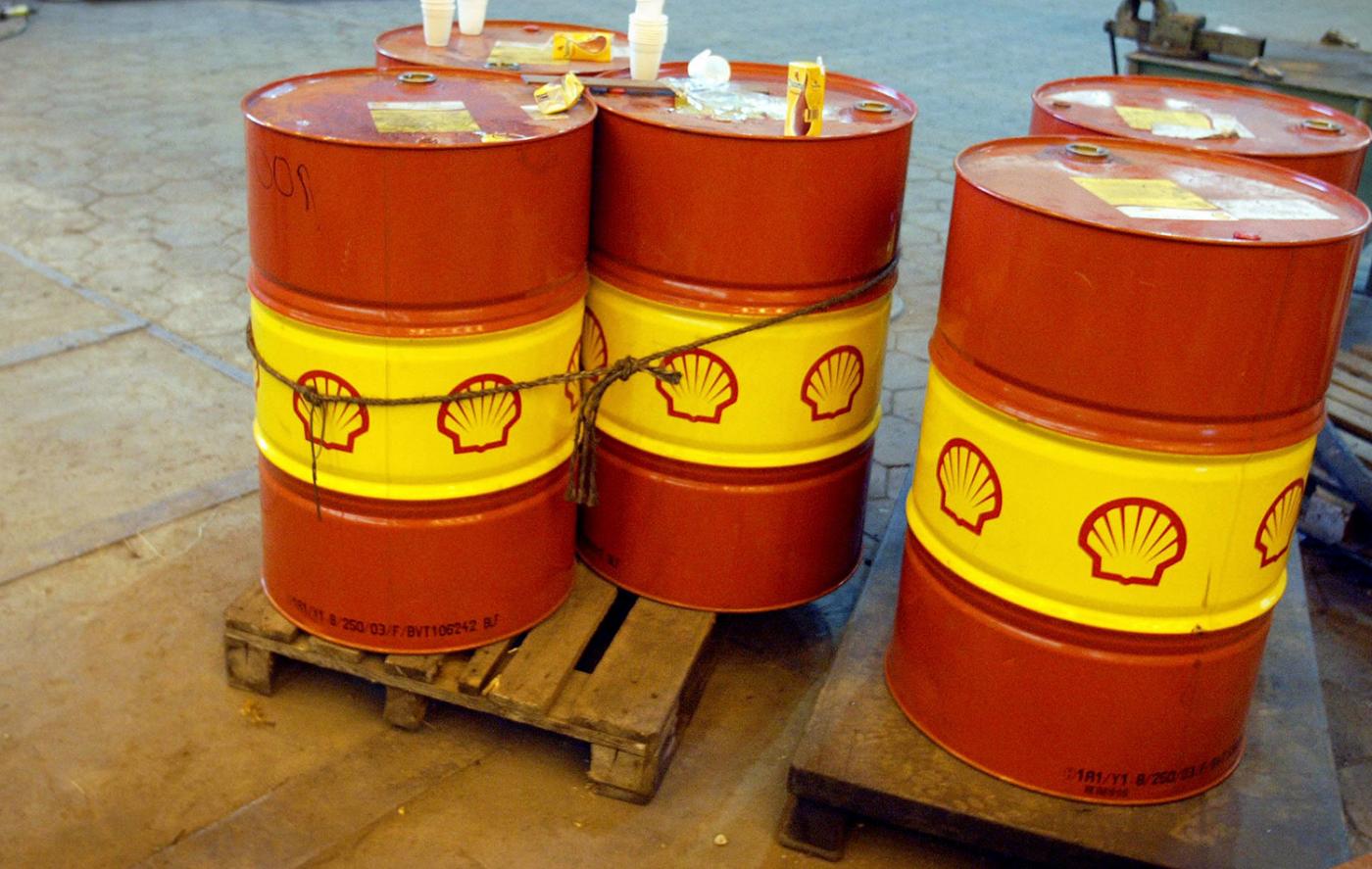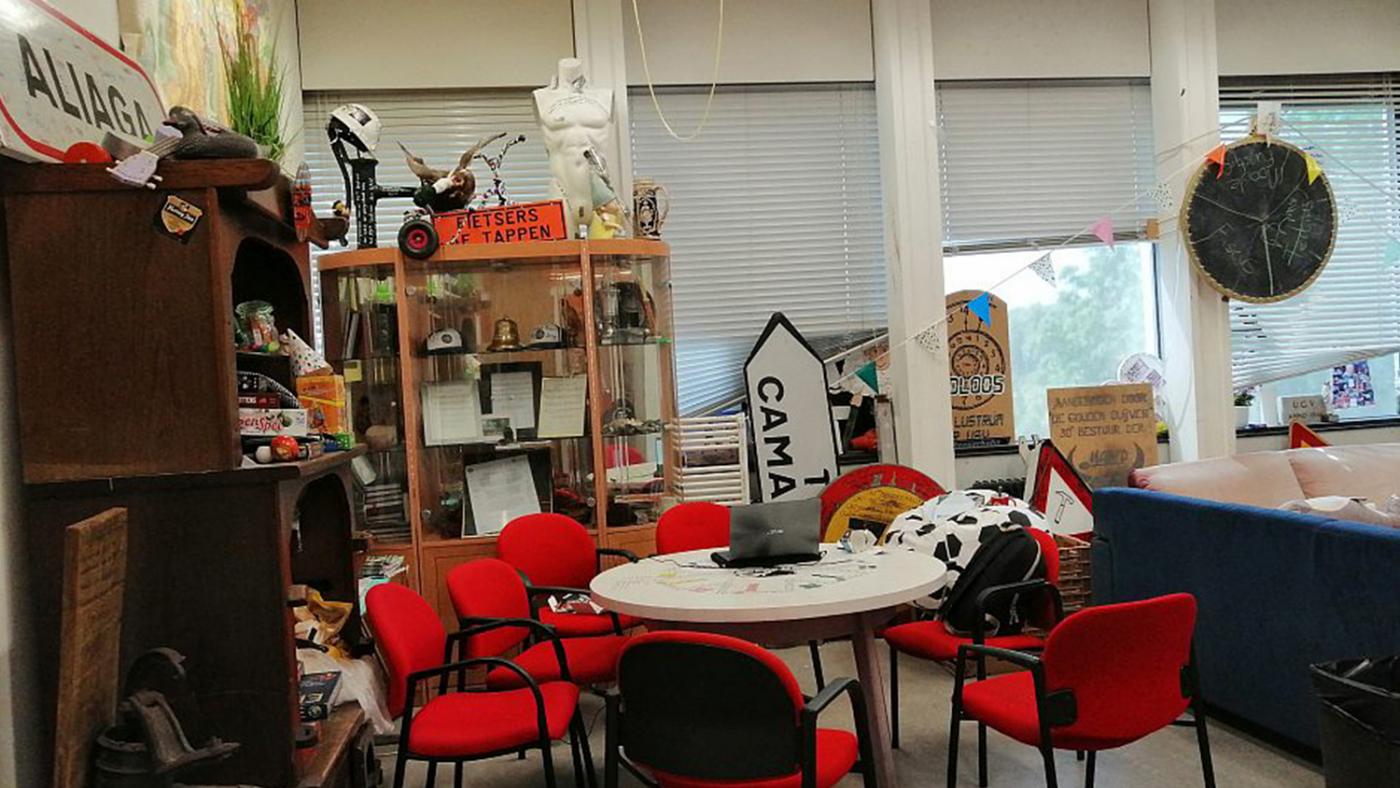College atmosphere hinders discussion
UU earth scientists struggle with Shell and self-reflection

In a recent interview with DUB, UU's Rector Henk Kummeling suggested study associations (especially UAV) to "think long and hard" about their collaborations with companies in the fossil fuel industry. “Do you still want to be sponsored by Shell in this way?” In his view, associations should refrain from accepting sponsorships that don't contribute to the energy transition.
UU's Earth Sciences Association (UAV) maintains sponsorship agreements with EBN, Shell, Petrogas, and Wintershall. In exchange for financial contributions, the association offers those companies presentations, visits, and advertisements. The money is used to organise activities. Without these funds from the fossil fuel industry, some of the association’s activities would become too expensive, which means they wouldn't be able to organise as many of them.
In addition, fossil fuel companies have traditionally offered attractive job opportunities to UAV members. Thanks to the sponsorship agreements, it’s easy for UAV members to get in touch with companies they would like to work at later on, not to mention that many UAV graduates already work at those companies, which strengthens the ties even further.
Members’ say
The UAV's board took Kummeling’s message to heart. On February 16, the association organised a gathering to discuss its relationship with the fossil fuel industry. Those present had widely varying opinions. While some felt that all ties to the industry should be severed, others argued that UAV members who end up working for these companies could make a difference from within, thanks to the knowledge they will bring to the organisation. The board will deliberate thoroughly over the next few weeks, before making a decision. They hope to have a new sponsorship policy ready for the academic year 2023-2024.
DUB spoke with six students who are members of the association and are sick and tired of Shell’s sponsorship. One of their reasons for opposing the partnership is their sentiment that the company is responsible for a massive contribution to climate change, especially considering Shell has been actively lobbying against research on its negative effects and systematically failing to meet climate goals. Moreover, Shell is involved with human rights violations that have cost lives in the Niger Delta and other places (all links in Dutch apart from the last two, Ed.).

Photo: DUB
Potential employer
The Shell debate has been rearing its head in the association for quite some time. Critics argue that the discussion should go beyond UAV's board as it provides an opportunity for self-reflection and for developing a culture of ethical standards at UAV and the faculty at large.
In exchange for sponsorship funds, Shell gets to present itself to UAV members as a potential future employer. According to the students, this is problematic as it is a "selective" promotional speech, which leaves out the negative facts about the company.
Els: “The main focus of these speeches is how important Shell supposedly is for the energy transition. They never say a word about human rights violations and environmental damage.”
Greenwashing
Greenwashing is the term used to define the act of emphasising (supposedly) sustainable practices by polluting organisations. Many students tend to think that they are unaffected by greenwashing as they have "the right knowledge" thanks to their academic background.
UAV president Dexter says the association's sponsorships aim to support students’ careers and “facilitate the contact between students and companies”. In the view of the six earth scientists DUB spoke with, this contact is a little bit too smooth right now. A true-to-life presentation of Shell as a company would be preferable, although what they would really like to see is Shell making way for more sustainable sponsors.
Vibe
According to the six members, the information UAV spreads about Shell does not paint the full picture, which means that most students are not aware of the company's true nature. During the gathering organised by the association to discuss the issue, it became clear that many students had never heard about Shell’s criminal activities: “They see Shell as a big player in the energy transition, which proves how effective their greenwashing is.” As a result, they say, the discussion is often kept at a superficial level, more related to "the vibe one gets from the company: some like it, others don’t". Shell’s sponsorship, however, is part of a much more complex issue. Els: “It’s about responsibility and ethics. UAV's board doesn’t seem to realise they play a role in this regard as well.”
Moral compass
The group says they’re happy that the discussion about Shell is gaining momentum. “I finally dared to speak up, which I never do at meetings. There usually isn’t room for a qualitative discussion,” says Brechtje. Still, the Earth Sciences students don't think the meeting's format suited the severity and urgency of the subject, not to mention it took UAV a long time to facilitate something like this at all. In their opinion, the association's "college-like culture", which transpires to members' meetings, is partially to blame.
“There needs to be more room for self-reflection across the entire association, so we can develop a moral compass", adds Brechtje. "We need to engage in more qualitative discussions, so members can learn from each other. We need to do that to be able to understand our place in the world a little better and make better choices based on what’s good and what isn’t. They need to think about a discussion format that makes room for this kind of thing: how conversations like this can take shape within the UAV culture.” That way, Brechtje believes that students who are not fond of the college-like atmosphere would also get involved in the debate. She is referring to the group of students who generally don't attend meetings and therefore don't have much of a say.

UAV. Photo: Utrecht University
Big responsibility
Despite the criticism, the six students praise the board's work in general and the number of activities they organise. Silke: “Our association has so many activities and they all need to be organised by the board. They’ve got so much on their plates.”
Reason enough for them to the big responsibility that’s being put on the shoulders of UAV's board members. “This is a complex issue. On the one hand, there is a side of the association related to college life. On the other hand, they also have to deal with sponsorships, checking each sponsor. Ethics and dialogue may not always find their place between alcohol and fun.”
President Dexter also indicates that being a member of UAV's board is no small feat. He says his board duties take between 60 and 70 hours a week. He calls the UAV a "very broad association that offers something for everyone", which leads many Earth Science students to see it as a substitute for a fraternity or sorority. He enjoys it when students compliment UAV for taking such good care of them.
About the gathering to discuss the relationship with Shell, Dexter states that the board didn't have any support in devising a format: participants were split into small groups and there was a presentation beforehand, in which the question was asked whether a study association should "hinder" the contact between companies and UAV members interested in them "based on moral considerations". According to Dexter, although there have always been instances in which members could speak their minds, such a format was new to them.
Complex world
The six students are happy about the change. They hope it is going to set a lasting trend in motion, not only at UAV. After all, the faculty as a whole is also in need of maintenance. “It says a lot that many people don’t know anything about what Shell really does, beyond the presentations they get through UAV and that the discussion about this issue is mainly based on ‘vibes’ and feelings,” says one of the critical UAV members. Although the programme is looking more and more into how it can prepare students for the complex world they will live in, the concept of self-reflection is still one that many earth scientists shy away from. “In order to assess controversial issues like this, we need to ask more questions about the ‘neutrality’ often mentioned in earth sciences. It's important to also hold this discussion within the programme itself.”
Henk Kummeling’s suggestion to "think long and hard" about ties to the fossil fuel industry is easier said than done. Although president Dexter thinks the rector's quote is a "logical reaction", a conversation about Shell isn't a casual, relaxed one. The association's president concludes that Shell's sponsorship remains a sensitive issue that can't be simply answered by the board. “We want to find an answer for our association, together with our members.”
To the six critical members, the format the discussion is currently taking fails to provide a good answer. They feel as though the college-like atmosphere that prevails at UAV is hindering a fruitful discussion. For this reason, they welcome the idea of the university helping them find an appropriate solution. Jesse says the board doesn’t grasp the importance of the situation and how positive their impact could be. “But they also need to get assistance on how to take this responsibility, so they don’t have to reinvent the wheel.”